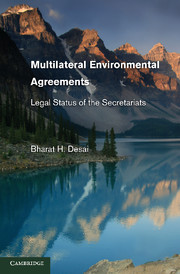1 - Institutionalizing Cooperation
Published online by Cambridge University Press: 05 September 2013
Summary
Introduction
The word institution indicates “the act or an instance of instituting” “an established law, practice or custom.” Thus, the process of instituting or establishing something results in an institution. In the national context, the process of institution building is much more smooth and orderly than at the international level, where sovereign states are the primary actors. In a national society, institutions emerge out of the needs of citizens at a given time. The practice of setting up an organization is just one such instance of establishing institutions. At the national level, governmental institutions derive their mandate as well as powers and competences from a statute enacted by the legislature. In the case of intergovernmental institutions, this is especially so as they derive their operational basis and raison d'être from an international instrument.
Organic Link
In general, the growth of law and the growth of institutions have been complementary to each other, and, in fact, do brook changes, keeping in view the needs of human society. Thomas Jefferson, one of the philosophers and architects of the American revolution, made a pertinent observation about the adaptability of institutions to societal requirements:
[L]aws and institutions must go hand in hand with the progress of the human mind. As that becomes more developed, more enlightened, as new discoveries are made, new truths discovered and manners and opinions change, with the change of circumstances, institutions must advance also to keep pace with the times. (emphasis added)
- Type
- Chapter
- Information
- Multilateral Environmental AgreementsLegal Status of the Secretariats, pp. 7 - 18Publisher: Cambridge University PressPrint publication year: 2010



